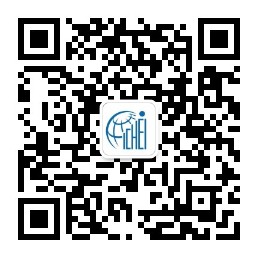White Paper Release at the 2023 IIOE Global Partners Summit
On 8 December, the White Paper on Higher Education in the Era of Artificial Intelligence (Draft) (hereinafter referred to as the "White Paper") drafted by the International Centre for Higher Education Innovation under the auspices of UNESCO (UNESCO-ICHEI) was introduced to the summit participants during the 2023 International Institute of Online Education (IIOE) Global Partners Summit. Based on extensive consultation from experts and enterprise partners, the White Paper endeavours to explore the current approaches and future directions for the effective use of AI technologies in teaching and learning, and advocates for the multilateral collaboration of higher education stakeholders, in order to advance the good use of technologies and related policies.

This White Paper is dedicated to providing institutions and educators in the IIOE ecosystem with a more comprehensive overview of issues related to AI and higher education, as well as the vision and outlook of UNESCO-ICHEI and IIOE. It also presents concrete solutions and possible paths of action, in order to support the stakeholders in the rational use of technology to achieve high-quality and equitable higher education. After the release of the White Paper, higher education experts and partner institutions of the IIOE alliance will be widely consulted, with the goal of integrating industry and academia, strengthening policy dialogue, promoting more HEIs in developing countries to reach a consensus on AI and higher education, and encouraging multiple stakeholders to explore the cooperation mechanism and the new ecosystem of higher education.

At the summit, Professor Lim Cher Ping, Chief Expert of the UNESCO-ICHEI IIOE and Chair Professor of Learning Technologies and Innovation at the Education University of Hong Kong, China (EdUHK), gave an overall introduction to the White Paper. Professor Lim Cher Ping said that the White Paper constitutes a policy advocacy and research outcome for IIOE partners to work together towards common policy standards and guidelines for the application of AI technologies. One of the highlights of the White Paper is the multi-stakeholder perspective, which explores the construction of higher education cooperation mechanisms in the AI era from perspectives of HEIs, Edtech enterprises, governments, and international organisations. It provides references from different perspectives for policy-making on the application of new technologies in HEIs. Based on industrial practices and in-depth research, the white paper discusses the role of University-Enterprise Cooperation (UEC) paths for the integration of AI and higher education. By comparing cases of higher education governance in different countries, the White Paper analyses the integration of AI and local culture, as well as the rational regulation of technology.
In addition, the White Paper emphasizes UNESCO-ICHEI's advocacy and commitment to the future integration of AI and higher education. UNESCO-ICHEI will work with global partners to utilize the full potential of AI-empowered teaching, innovate the higher education model, promote the organic combination of teachers' professional competence and AI technology. UNESCO-ICHEI endeavours to deepen the strategy of capacity building for HEIs, covering policy guidance, professional training, and technical support, in order to guarantee high-quality and equitable higher education and lifelong learning opportunities. Based on this common goal, IIOE is committed to enhancing the professional competencies of teachers in applying AI, improving the AI talent cultivation mechanism, promoting pedagogical and institutional management innovations, facilitating the optimization and upgrading of AI education products, and strengthening the HEI governance of AI technology globally.
Introduction to chapters
Artificial Intelligence (AI), as a technological tool that emulates human cognition and decision-making processes, stands out as the most influential and promising technology, introducing boundless and new possibilities. While envisioning the future, the education sector has maintained a cautious approach to considering and applying AI technology. At present, it remains uncertain whether institutions have adequately prepared to address the changes brought about by AI and possess a clear understanding of how to integrate AI into the education system. In addition, despite rapid developments in AI in some countries, many developing countries have yet to widely adopt AI in higher education institutions (HEIs).
In June 2023, Stefania Giannini, Assistant Director-General for Education at UNESCO, stated in Generative AI and the Future of Education that "Generative AI opens new horizons and challenges for education. But we urgently need to take action to ensure that new AI technologies are integrated into education on our terms." In view of this, how to effectively integrate AI into higher education has become a key issue in this era.
Under this context, the White Paper consists of four chapters, discussing four significant issues: opportunities, challenges, and visions for AI integration in higher education; enterprise partnership in facilitating AI integration in higher education; AI governance and higher education: policy and governance; and helping higher education institutions and teaching personnel adapt to the new demands of AI technology under the framework of IIOE.

Chapter 1 emphasizes opportunities, challenges and visions for AI integration in higher education. Based on existing research, this chapter summarizes the opportunities and challenges of AI integration with higher education. On the one hand, it explores how AI can empower higher education and contribute to Sustainable Development Goal 4 (SDG4) by ensuring inclusive and equitable quality education for all, and promoting lifelong learning opportunities. On the other hand, this chapter also discusses the challenges of AI in higher education, including academic integrity risks, ethical concerns, and the digital divide. This chapter also presents a future vision for AI integration in higher education and attempts to outline roadmaps, calling on policymakers, HEIs, and Edtech enterprises to act jointly to innovate higher education.
Chapter 2 focuses on industrial AI advantages with higher education. It is significant for institutions to achieve their future vision and seize development opportunities through the enterprise's scale and first-mover advantages. Therefore, based on the diverse partnership characteristics of IIOE and its own vision, it is strategically necessary to understand the new development of enterprises and contemplating how IIOE can leverage the results of university-enterprise cooperation to drive innovation in higher education.

Chapter 3 focuses on AI governance and higher education, and delves into leading role of administrative departments of government and HEIs in regulation and governance in AI, exploring their political practices in promoting the AI integration in higher education, and identifying the current gaps in education ministries and HEIs in AI governance policies. It attempts to compare and summarize the principles supporting the effective introduction, management and governance of AI technology.
Chapter 4 explores the vision of how IIOE will promote the integration of AI technology industry with instruction and HEIs, leveraging the opportunities presented by emerging technologies to continously respond to UNESCO's unified framework and serve the overall objectives of UNESCO-ICHEI. IIOE is committed to supporting the digital empowerment of partner HEIs in developing countries through a series of measures, such as public-private partnership ecological alliances, national center mechanisms, open digital learning platforms and smart classrooms. In the era of AI, IIOE will also undertake a new mission and actively advocate the organic integration of AI and higher education.




